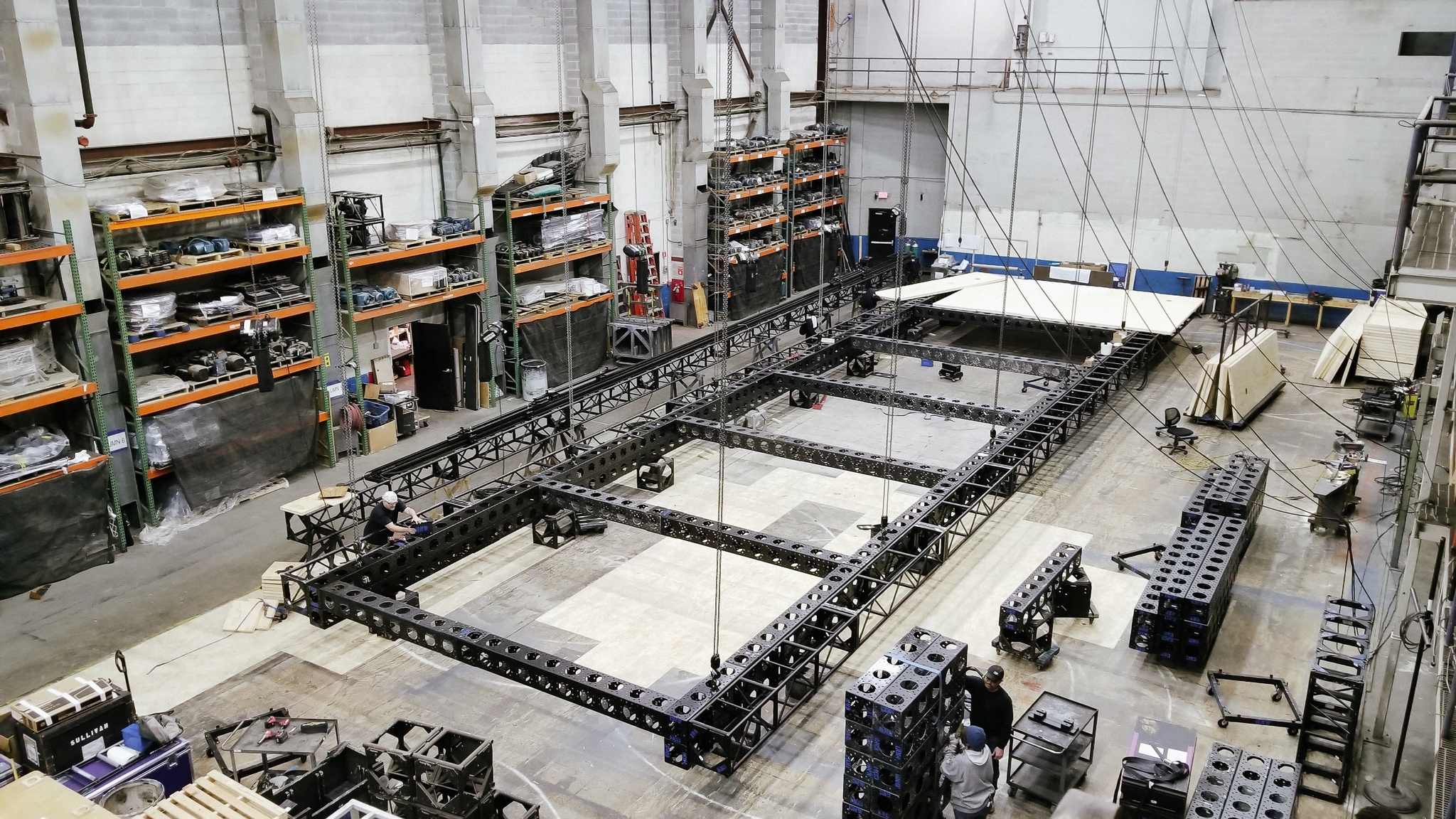In The Works
In the works

Get an inside look at what’s in the works at The Shed, as well as the process behind the creation of past programs.
Emerging Artists Facing the Present by Exploring the Past
Get to know the artists who presented work in the Open Call 2023 Group Exhibition, which ran from November 4, 2023, to January 21, 2024. Each of their projects takes on history as a means of understanding the present, following circular paths and doubling back on memories—both individual and collective—to make sense of the world we live in today. In this video series, the artists introduce themselves where they live and work.
In The Works
Reimagining the Experience of Music
This past June at The Shed, audiences discovered new ways to experience music. Sonic Sphere, a vast, 65-foot-diameter spherical concert hall suspended in air in The Shed’s soaring, 115-foot-tall McCourt, featured immersive, 3-D sound and light explorations of music. KAGAMI, created by the late, legendary composer Ryuichi Sakamoto and Tin Drum, offered a new kind of concert, fusing dimensional moving photography with the real world to create a never-before-experienced mixed reality presentation. Go behind the scenes of the making of these two programs.
In The Works
The Fire Ensemble’s Ritual for Survival and Community
In December 2022, the Fire Ensemble, led by composer Troy Anthony, presented a developmental concert sharing of To Feel A Thing: A Ritual For Emergence, written by adrienne maree brown in collaboration with Fire Ensemble artistic director Troy Anthony and directed by Charlotte Brathwaite. The Fire Ensemble is an intergenerational choir community centering BIPOC and LGBTQIA+ folx that is in residence at The Shed. Hear from Anthony and some of the choir’s members on building community around To Feel A Thing.
In The Works
Learn more about Maxwell Alexandre
Brazilian artist Maxwell Alexandre’s paintings depict collective portraits celebrating the empowerment, self-esteem, and prosperity of Black people. Get to know the artist in two videos exploring his exhibition, which was on view from October 2022 to January 2023.
In The Works
The Stories Behind Straight Line Crazy
In fall 2022, Ralph Fiennes returned to the New York stage at The Shed as Robert Moses in David Hare’s Straight Line Crazy, directed by Nicholas Hytner and Jamie Armitage. Hear from the creative team in two recorded conversations.
In The Works
Meet the 2022 Open Call artists
Open Call is our large-scale commissioning program for emerging NYC artists. In summer 2022, eight artists presented new performances. Get to know more about them and their work with these videos and conversations.
To learn more about all the artists in the program, visit the Open Call page.
In The Works
Explore Spiderwebs and the Cosmic web with Tomás Saraceno
Tomás Saraceno’s exhibition, Particular Matter(s), called us to renew relationships with Earth, the air, and the cosmos in the Capitalocene, a name for the era of Earth’s existence that we’re living in, characterized by the destructive effects of capitalism on the environment. Though the exhibition is now closed, continue learning about the interwoven threads of Saraceno’s work.
In The Works
The Quest for an Adapted Classic
Dive into the creative team’s thoughts behind the silent film adaptation MOBY DICK; or, The Whale, directed by Wu Tsang, performed with live orchestral accompaniment by Members of the New York Philharmonic at The Shed.
In The Works
Investigate White Dominance with Claudia Rankine
Claudia Rankine’s play, Help, continued the celebrated poet and essayist’s deep inquiry into white dominance in our society. Learn more about the production from its creative team and join the ongoing, urgent conversation opened by the play.
In The Works
Join in The Search for Signs of Intelligent Life in the Universe
Hear from Cecily Strong, Jane Wagner, and Lily Tomlin about Wagner’s The Search for Signs of Intelligent Life in the Universe, which returned to a New York stage for the first time in two decades in The Shed’s Griffin Theater in December 2021.
In The Works
In The Works
Revisit our fall 2021 exhibitions
In The Works
Hear from the Looking Glass Artists and curators
In The Works
Explore the stories behind past programs
